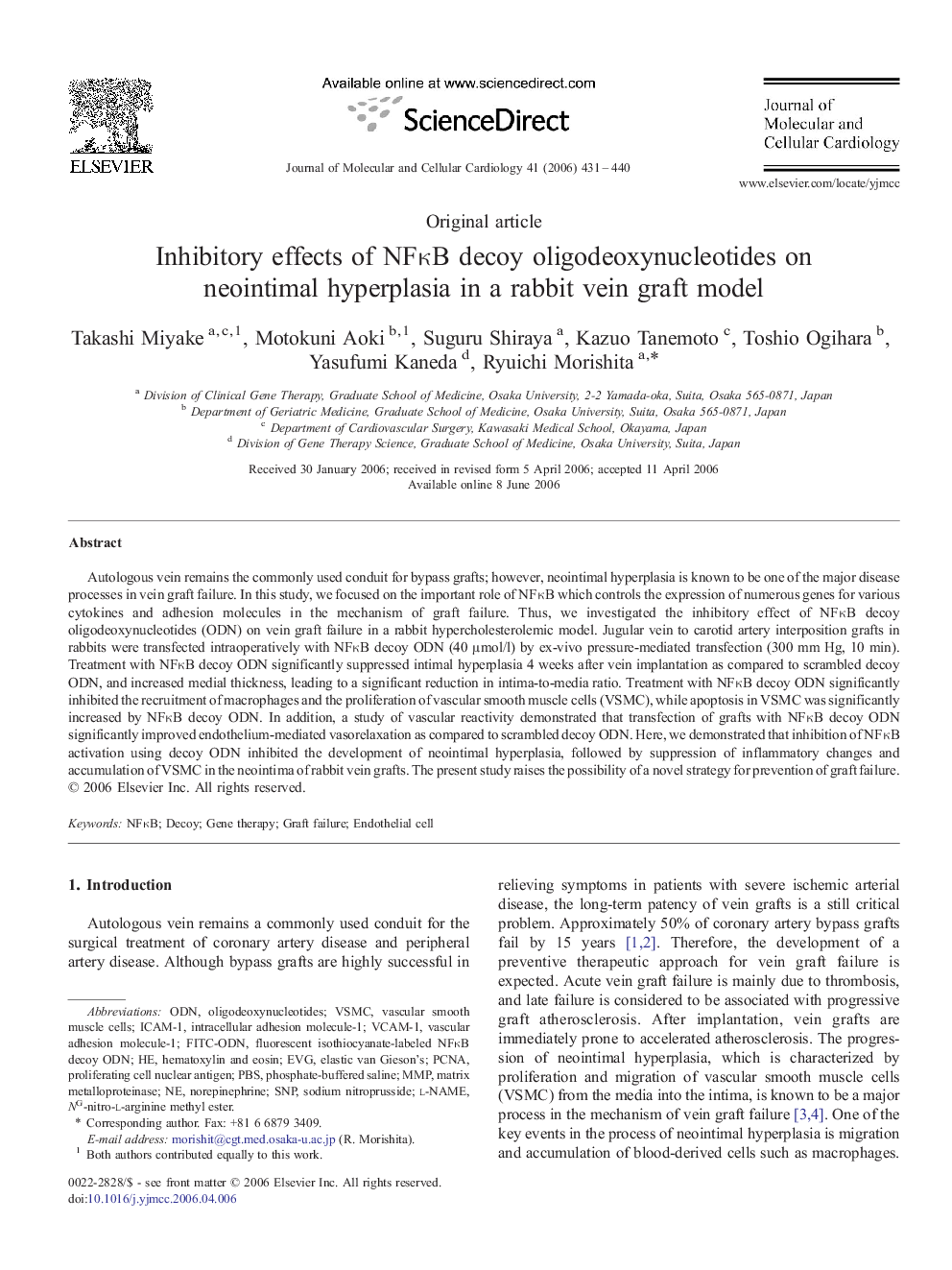| Article ID | Journal | Published Year | Pages | File Type |
|---|---|---|---|---|
| 2192299 | Journal of Molecular and Cellular Cardiology | 2006 | 10 Pages |
Autologous vein remains the commonly used conduit for bypass grafts; however, neointimal hyperplasia is known to be one of the major disease processes in vein graft failure. In this study, we focused on the important role of NFκB which controls the expression of numerous genes for various cytokines and adhesion molecules in the mechanism of graft failure. Thus, we investigated the inhibitory effect of NFκB decoy oligodeoxynucleotides (ODN) on vein graft failure in a rabbit hypercholesterolemic model. Jugular vein to carotid artery interposition grafts in rabbits were transfected intraoperatively with NFκB decoy ODN (40 μmol/l) by ex-vivo pressure-mediated transfection (300 mm Hg, 10 min). Treatment with NFκB decoy ODN significantly suppressed intimal hyperplasia 4 weeks after vein implantation as compared to scrambled decoy ODN, and increased medial thickness, leading to a significant reduction in intima-to-media ratio. Treatment with NFκB decoy ODN significantly inhibited the recruitment of macrophages and the proliferation of vascular smooth muscle cells (VSMC), while apoptosis in VSMC was significantly increased by NFκB decoy ODN. In addition, a study of vascular reactivity demonstrated that transfection of grafts with NFκB decoy ODN significantly improved endothelium-mediated vasorelaxation as compared to scrambled decoy ODN. Here, we demonstrated that inhibition of NFκB activation using decoy ODN inhibited the development of neointimal hyperplasia, followed by suppression of inflammatory changes and accumulation of VSMC in the neointima of rabbit vein grafts. The present study raises the possibility of a novel strategy for prevention of graft failure.
